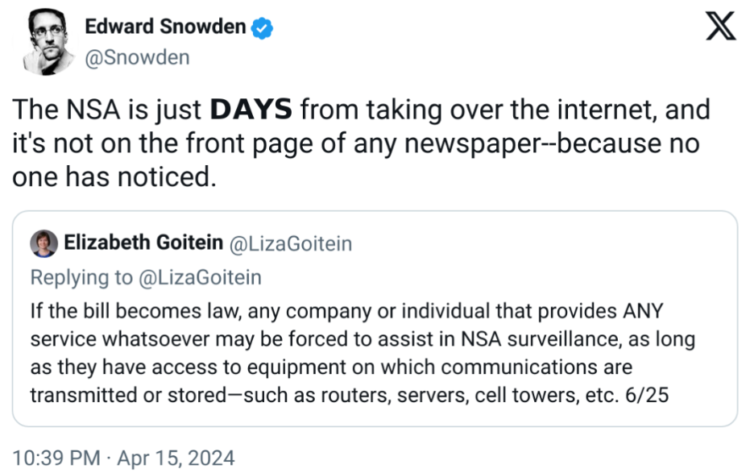Pavel Durov, Telegram’s founder, said the rise in government regulation would lead to developing secure communication devices inspired by crypto hardware wallets.

During an interview with Tucker Carlson on April 17, Durov recounted previous experiences and lamented government entities’ ongoing suppression of private information exchange.
“The world is becoming less amenable. Governments are becoming less tolerant of privacy. And that’s clearly the trend because they have more technological power.”
Nevertheless, Durov thinks that increasing regulatory scrutiny will compel advancements in hardware devices specifically designed for secure communications, “much like how hardware wallets are utilized to store cryptocurrencies.”

According to his assertion, the Federal Bureau of Investigation (FBI), a law enforcement agency in the United States, tried convincing individuals associated with Telegram to implement backdoors to conduct surveillance.
Durov stated that the United Arab Emirates (UAE) geopolitical neutrality is optimal for entrepreneurs fighting for anti-surveillance and privacy:
“It’s a small country that wants to be friends with everybody. It’s not aligned geopolitically with any of the big superpowers. And I think it’s the best place for a neutral platform like ours to be in if we want to make sure we can defend our users’ privacy and freedom of speech.”
Durov stated, regarding company ownership, that he abstains from venture capital (VC) investments to shield Telegram’s operations from external influence. He disclosed that he possesses a “few hundred million dollars” in fiat and Bitcoin, enabling him to bootstrap one hundred percent of his initiatives and companies.
However, he has previously raised capital for several initiatives, including one involving cryptocurrencies.
In line with Durov’s apprehensions regarding the escalating surveillance efforts of the government, Edward Snowden, an American whistleblower, issued a warning on April 16 that the National Security Agency (NSA) of the United States is mere days away from “taking over the internet” through a substantial augmentation of its surveillance capabilities.

Elizabeth Goitein, co-director of the Liberty and National Security Program at the Brennan Center for Justice, noted that an “innocuous change” to the definition of “electronic communications surveillance provider” in the Foreign Intelligence Surveillance Act (FISA) 702 bill could allow the U.S. government to force nearly every company and individual that provides an internet-related service to comply, far beyond its current scope. This observation precedes Edward Snowden’s alert.
